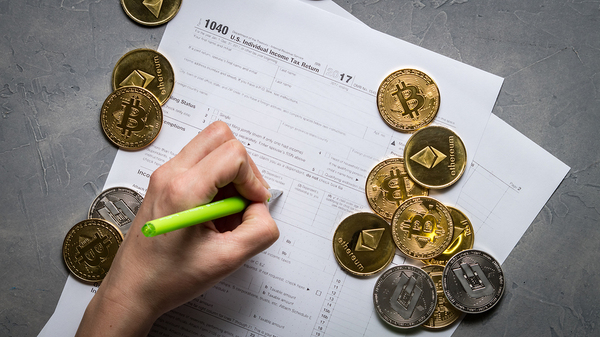
The IRS is warning thousands of bitcoin traders to pay their taxes. Not only is the agency eyeing tax dodgers, but also investors who did not file their transactions properly.
The IRS considers bitcoin and other “virtual currencies” as property. According to its website, general tax principles applicable to property transactions apply to transactions using virtual currency.
To stay on the safe side of the law, it is important to know the right way to handle taxes on your bitcoin trading.
What Is NOT Taxable?
- Buying coins/tokens with fiat currency does not incur tax. Nevertheless, investors need to record their transaction history since it is vital in calculating their cost-basis once they decide to sell.
- Moving digital currencies between one’s own wallets and exchanges does not incur tax.
- Margin trading and futures trading using bitcoin or altcoins are not taxable as they are debt-based contracts similar to lending.
What Is Taxable?
- Selling coins/tokens for fiat currency incurs capital gains tax since it generates income for the investor.
- Closing a position in margin/futures trading incurs capital gains tax. Closing a position is synonymous to selling a property (in this case, a debt contract). Any income made, then, is considered as capital gain and must be declared in the same way as regular bitcoin trading.
- Trading one altcoin/bitcoin for another is subject to capital gains tax. Some investors might find it hard to believe, but buying an altcoin with bitcoin or Ether is a taxable event. Each trade between any altcoin from another incurs capital gains tax. Furthermore, participating in ICOs/IEOs is also taxable.
How Capital Gains Are Calculated
It’s important to know your capital gains because it is the most vital detail in your tax report. An investor calculates capital gains by deducting the cost basis (buying price) from the selling price.
Capital Gains = Selling Price – Cost Basis
Therefore, you need to know your cost basis first.
The cost basis is simply the total amount you have invested to gain your coin, including the trading fees and other types of fees paid.
Cost Basis = (Buying Price of Crypto + Fees) / Quantity of Holding
Example
If the cost basis of your bitcoin purchase was $5,000 and the selling price was $11,000, your capital gain is $6,000 ($11,000 – $5,000).
How To File A Crypto Tax Report
It is highly recommended that you use altcoin tax automation tools like CoinTracking
to save time and energy as well as minimize errors.
However, if that option does not appeal to you, you can choose to handle your taxes as a DIY project with these steps:
- Download all transactions from your own exchange accounts and wallets, including previous years.
- Match transfers between your own wallets and exchange accounts.
- Assign market rates to all your crypto trades to correctly generate the cost-basis.
- Calculate your capital gains.
 Reporting
Reporting
- Fill out Form 8949 and Form 1040.
- Declare your income from trading digital currencies under the “other income” section of line 21 of Schedule 1 – Additional Income and Adjustments to Income.
Why Taxation is Actually Good News
The existence of bitcoin taxes is an indication that the US government is beginning to recognize digital currencies as legitimate sources of income. Accordingly, investors should pay their dues to avoid stiff penalties from the IRS and to show the world that bitcoin trading can, in fact, help the community.
To learn more about all things bitcoin and blockchain-related, take a moment today to subscribe to the Bitcoin Market Journal newsletter.

